- News
- Reviews
- Bikes
- Accessories
- Accessories - misc
- Computer mounts
- Bags
- Bar ends
- Bike bags & cases
- Bottle cages
- Bottles
- Cameras
- Car racks
- Child seats
- Computers
- Glasses
- GPS units
- Helmets
- Lights - front
- Lights - rear
- Lights - sets
- Locks
- Mirrors
- Mudguards
- Racks
- Pumps & CO2 inflators
- Puncture kits
- Reflectives
- Smart watches
- Stands and racks
- Trailers
- Clothing
- Components
- Bar tape & grips
- Bottom brackets
- Brake & gear cables
- Brake & STI levers
- Brake pads & spares
- Brakes
- Cassettes & freewheels
- Chains
- Chainsets & chainrings
- Derailleurs - front
- Derailleurs - rear
- Forks
- Gear levers & shifters
- Groupsets
- Handlebars & extensions
- Headsets
- Hubs
- Inner tubes
- Pedals
- Quick releases & skewers
- Saddles
- Seatposts
- Stems
- Wheels
- Tyres
- Health, fitness and nutrition
- Tools and workshop
- Miscellaneous
- Tubeless valves
- Buyers Guides
- Features
- Forum
- Recommends
- Podcast
news
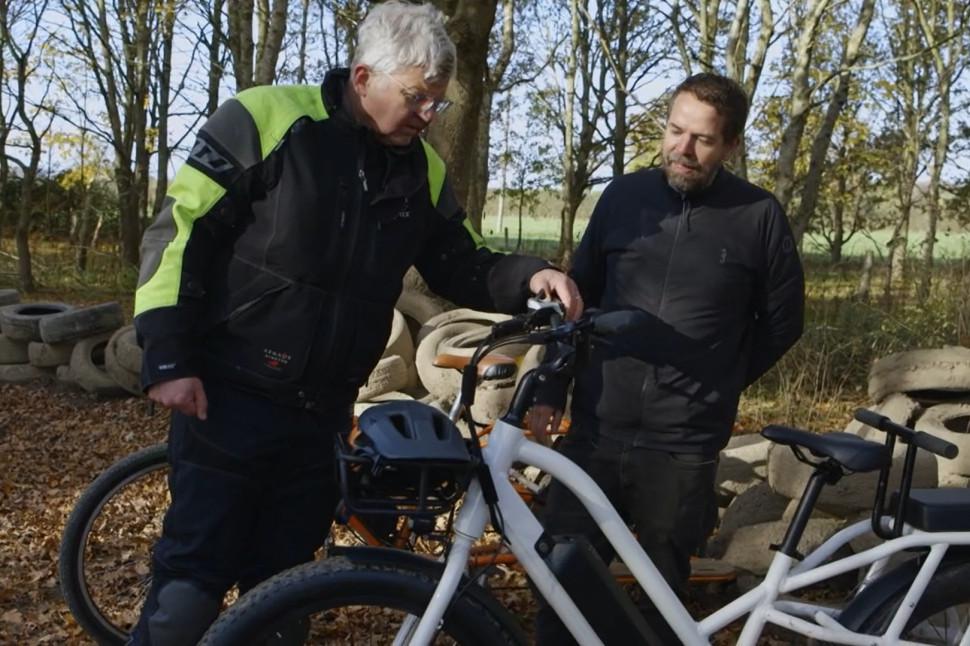 BBC Panorama - Adrian Chiles looking at e-bikes
BBC Panorama - Adrian Chiles looking at e-bikesBicycle Association formally complains to BBC over Adrian Chiles’ e-bike Panorama “misrepresentation”, claiming episode “unjustifiably damaged” legal e-bike industry
The Bicycle Association, the national body representing the cycling industry in the UK, has lodged a formal complaint with the BBC about its recent Panorama episode on e-bikes, arguing that the controversial programme inaccurately and repeatedly conflated the “safety and social issues” surrounding the use of "illegal e-motorbikes" with road-legal e-bikes, claiming that this “misrepresentation” has “unjustifiably damaged” the e-bike sector.
As part of its complaint, the group called for the term ‘e-bike’ to be removed from the programme’s title to better reflect its apparent focus on e-motorbikes - as the Bicycle Association (BA) refers to them - and claimed the episode failed to provide “fair balance or representation from the reputable e-bike sector”. The BA claims this was a breach of the BBC’s editorial guidelines, while also failing to properly inform the public about the current laws and regulations around electric bikes.
On Monday, the BBC aired its latest Panorama episode, hosted by Adrian Chiles, titled ‘E-Bikes: The Battle For Our Streets’, which saw the former One Show host ask whether electric bikes are “a new menace in need of tighter regulation”.
However, the episode’s prolonged focus on modified e-bikes – which exceed the maximum 250 watts and 15.5mph cut-off speed for electrically assisted pedal cycles (EAPCs) permitted under UK law to ride on public roads – and the failure to consistently and fully distinguish between these machines has seen the BBC come in for some strong criticism from cycling campaigners in recent days.
“Panorama confuses legal with illegally modified e-bikes and ignores their benefits compared to the UK’s car use,” the London Cycling Campaign said in response to the episode on Monday.
“If we switched lots of cars for e-bikes in the UK we’d see health, crime, road danger, and climate benefits, not the tabloid, crime-ridden, apocalyptic vision Panorama paints.”
Referring to the episode’s attempt to discover whether e-bike use is linked to dangerous riding and criminality, Alex Bowden, in his review for road.cc’s sister site e-biketips, said: “Clearly there are specific issues which nebulous questioning and imprecise categorisation won’t do much to resolve.
“Maybe we’re biased but ‘What can we do about e-bikes?’ and ‘What can we do about illegal e-bikes?’ are not to us the same question.”
And on Wednesday evening, following this backlash, the Bicycle Association (BA), the trade organisation representing 140 cycling companies in the UK, lodged a formal complaint with the BBC concerning Panorama’s coverage of e-bikes.
In the complaint, the BA’s technical and policy director Peter Eland called on the BBC to “remove ‘E-bikes’ from the programme title and instead reference ‘illegal e-motorbikes’,” and in future programming on the subject to “make it fully clear and properly inform the public that e-bikes and illegal e-motorbikes are two entirely separate categories”.
He also urged the broadcaster more generally to “provide proper balance when addressing contentious transport issues, including featuring representation by responsible organisations in the sector”.
According to the association, the Panorama episode “repeatedly conflates the safety and social issues surrounding the use of illegal e-motorbikes with ‘e-bikes’ and fails to make it clear that these issues are overwhelmingly not caused by (road legal) e-bikes.
“This is compounded by the juxtaposition (without distinction) of footage of both illegal e-motorbikes and road-legal e-bikes, implying that they are one and the same. This misrepresentation is against the public interest and not fair or accurate (hence in breach of BBC editorial guidelines).”
> More experts, fewer conspiracy theorists on active travel TV shows please
The group also criticised the episode’s choice of ‘expert’ – “an enthusiast with a collection of illegal e-motorbikes, not road legal e-bikes” – and claimed that in doing so the programme “in effect promoted illegal e-motorbike use”.
“No reputable road legal e-bike supplier or cycle industry representative was featured,” the group said in the complaint. “No fair balance or representation from the reputable e-bike sector was provided, also in breach of BBC editorial guidelines.”
Elsewhere in the complaint, Chiles’ claim in the episode that the laws and regulations around e-bikes are “unclear or insufficient” was branded “factually incorrect”.
“The law is completely clear about what is or is not a road legal e-bike (EAPC),” the association said. “Any electrically powered two-wheeler that is not a road legal e-bike (EAPC), or a properly type approved and registered e-moped/e-motorbike, is an illegal e-motorbike.
“There are legitimate questions about the extent of enforcement of these rules, but the rules themselves are completely clear.”
> Is cycling treated fairly in the media? BBC AntiSocial goes cycling discussed with ‘the cyclist'
The association continued: “The reputable UK cycle and e-bike industry fully supports all and any measures to enforce the current very clear legislation and to remove illegal e-motorbikes from our streets. We also call for reforms of the food delivery sector to address use of illegal e-motorbikes by delivery riders.
“However, these issues are entirely distinct from the road legal e-bike category, which offers many health and mobility benefits for the general public, including many disabled people.
“We consider that this programme has, by confusing these issues, both failed to properly inform the public and also unjustifiably damaged the road legal e-bike sector through misrepresentation.”
After obtaining a PhD, lecturing, and hosting a history podcast at Queen’s University Belfast, Ryan joined road.cc in December 2021 and since then has kept the site’s readers and listeners informed and enthralled (well at least occasionally) on news, the live blog, and the road.cc Podcast. After boarding a wrong bus at the world championships and ruining a good pair of jeans at the cyclocross, he now serves as road.cc’s senior news writer. Before his foray into cycling journalism, he wallowed in the equally pitiless world of academia, where he wrote a book about Victorian politics and droned on about cycling and bikes to classes of bored students (while taking every chance he could get to talk about cycling in print or on the radio). He can be found riding his bike very slowly around the narrow, scenic country lanes of Co. Down.
Latest Comments
- ragtag 3 min 19 sec ago
I see you want it both ways and resort to abuse.
- IanGlasgow 1 hour 15 min ago
40 pedestrians a year are killed by drivers on pavements in the UK. The solution is simple - remove all the pavements!
- Simon E 2 hours 30 min ago
So should everyone who owns a smartphone therefore be expected to buy bikes, cars and everything else they want or need from China?...
- Rendel Harris 4 hours 7 min ago
Very unpopular, I am informed by someone on the inside; the majority of staff would love to have their own column and seeing someone getting well...
- Freddy56 13 hours 5 min ago
I have a 10 year old set of shamals and a 20 TWENTY! year old set of Zondas still going strong.
- Freddy56 13 hours 7 min ago
I have these in the photochromic option for winter and they are light and fast acting. Happy with the purchase.
- ChrisA 15 hours 50 min ago
You want solar panels? Yours for €1659. https://widepathcamper.com/spare-part/428629/solar-cell-kit-complete-wit...
- Beachboy 16 hours 28 min ago
If you want to see a real demonstration, albeit on social media from kick ball fans, tell them you are keeping the trees but making the road a...
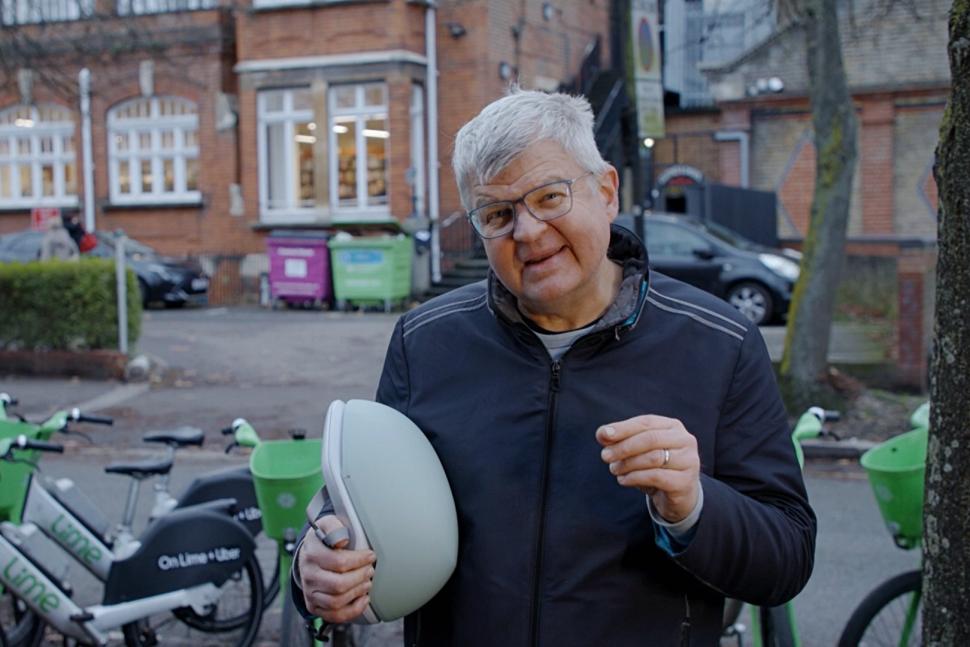
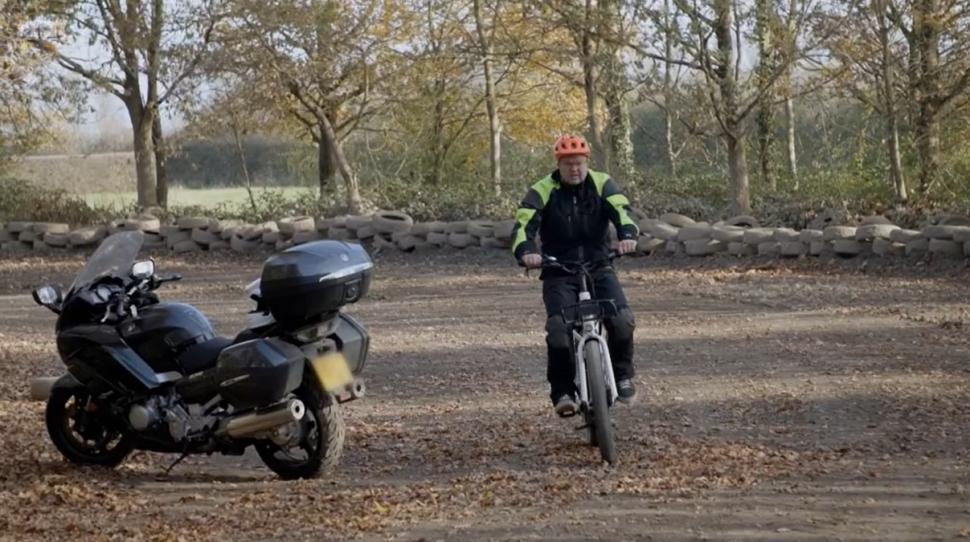
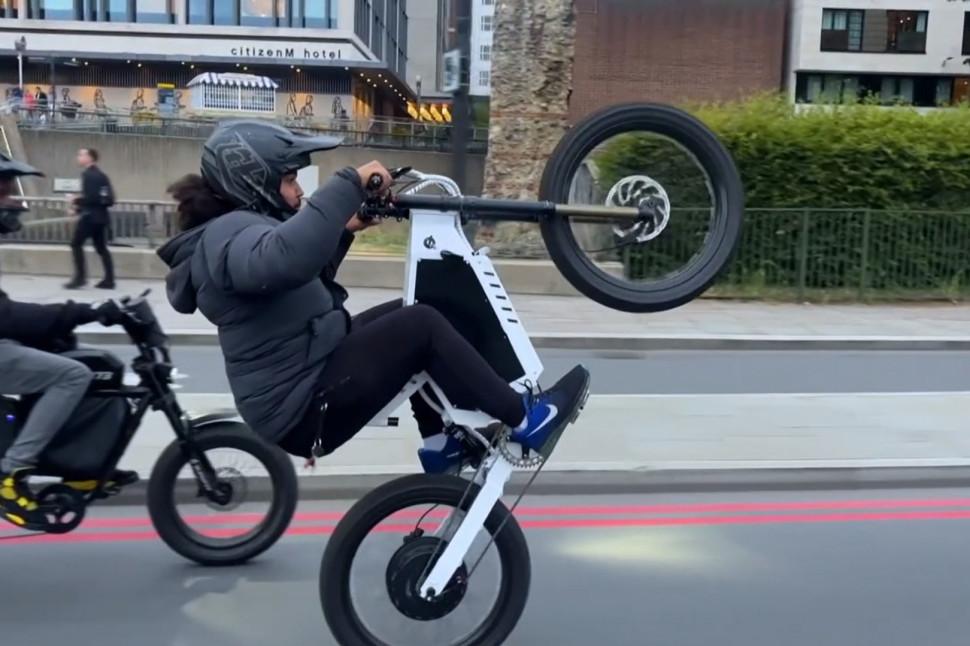
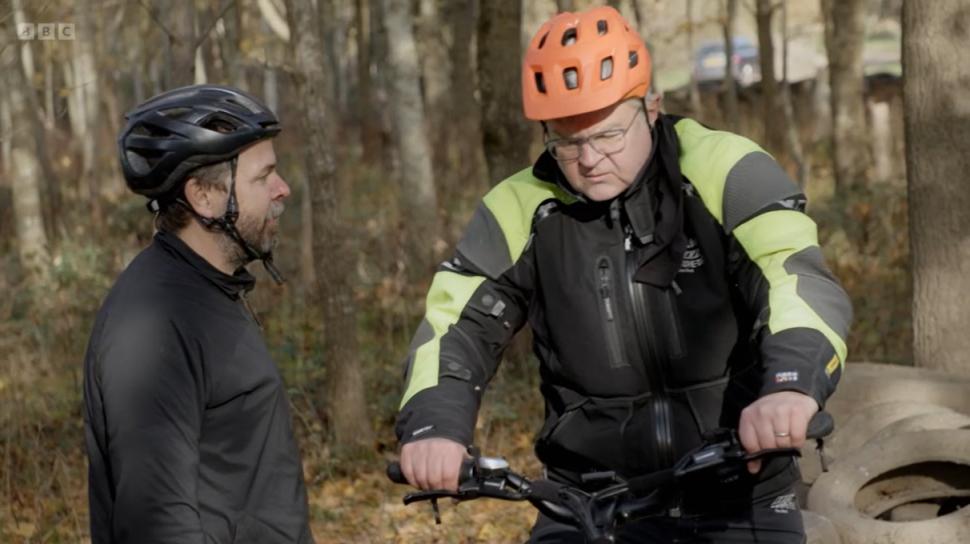
Add new comment
44 comments
I'd quite like to see a similar principle applied to driving whilst banned / not insured - just make it a strict liability offence attached to the vehicle owner so the vehicle can be immediately siezed, made roadworthy and sold if being driven when or by someone it shouldn't be. You'd think the scheme would pay for itself quite quickly.
That said, many years ago, a friend's brother worked for the police in Surrey. I asked him why the police don't simply round up all the obviously modified cars and motorcycles being hooned about near BoxHill so that modifications can be notified to the insurers. Simple answer "There's only two blokes in the car-checking department and they're both busy all day every day working on the aftermath of RTAs".
So ... add it to the very long list, basically.
I don't think the major problem is with derestriction of more expensive e-bikes, but it's the "e-bike" kits that modify a cheap bike and turn it into an e-motorbike.
It's a waste of time and resources trying to prevent people from modifying bikes as the manufacturer is not going to want to put extra resources into making their products less desirable to customers.
I agree that the answer is sufficient road traffic enforcement.
I will confess to not having watched the programme yet but I don't think it helps that this article keeps referring to some of these bikes as "illegal". The probelm is that e-bikes with over 250W motors and no speed restriction are perfectly legal to buy and own, as are 2000W+ electric motorbikes and kids electric motorbikes. They are not illegal; they are not road (or public cyclepath) legal. I would support tighter regulation at the point of sale, at the minute, the sellers just seem to put a little disclaimer at the bottom of the sales page to meet their legal requirements. Compulsory registration for everything other than road-legal bikes. Enforcement is basically non-existent so greater restrictions on sales seems the way forward, at least for complete bikes, trickier for conversion kits. Do agree that news stories need to distinguish between road legal and non-road legal machines. I'd be willing to bet that 90% + of delivery rider bikes don't meet road-legal requirements, but the powers that be do not seem very interested in enforcing these laws.
You are playing with semantics for no benefit. No one is buying these bikes and riding them round their gardens, 99% of them end up on the roads. So yes they are illegal in a public space just like a lock knife in your pocket with no good cause is considered an illegal weapon. In your house the knife is legal.
I think we are in agreement and your point is the same one I was attempting to make. There is a proliferation of these bikes as they are legal to own / buy. That's why they need to step up the regulation on sales / possession; they are already illegal to use in public places, but the enforcement is not there.
I just had an email from Fully Charged (I'm on their mailing list even though I ended up buying my cargo bike elsewhere) encouraging people to put in complaints to the BBC about the programme.
Panorama used to be a serious programme based on serious journalism informing the public on important issues.
What a fall from grace for the BBC.
I noticed it became horrifyingly populist tittle tattle, when the format reduced to 30 minutes.
I dipped in to it a few weeks back and made a very quick retreat.
I think it is a programme that can seem like serious journalism until it covers a topic you have decent understanding of, and then you realise it's sensationalist nonsense. And has been for years.
It must be a good twenty years ago since my old boss was interviewed for it as an expert commentator, but I still remember how livid she was after they left. They spent around about an hour asking leading questions, trying to get her to say something sensationalist and dramatic, with no interest in her actual expertise on the subject. It turns out they did similar to the eight other highly qualified experts in the field we knew were interviewed, but because none of them gave the response they wanted, their views weren't aired. Instead they used bits of an interview of someone known in the field as a bit of a crank.
The only difference now is it seems like they didn't bother approaching the relevant experts, having worked out in advance they weren't going to support their angle.
I generally defend the BBC when it comes to complaints about bias, because most of the time it's from people who simply want their personal biases amplified. Not saying it's perfect, but it's worth reminding ourselves of who benefits the most from undermining what is still, despite the flaws, one of the more rounded sources of news. But when it comes to Panorama, there's no doubt to me that it has long been the documentary equivalent of a tabloid that adheres to the mantra that bad news and scandal sell.
Your comment sums up Panorama perfectly for me. It's deeply disappointing having for many years regarded the investigation and reporting as credible, to have that shattered as soon as it turns to something I have knowledge of.
It's all the worse when the presenter is a (metaphorical) light-weight like Chiles.
Yes, not a single person from a cycling organisation or the Bicycle Association, but a Pedestrians Association person was in there, as was a frankly idiotic Telegraph reporter.
They may well have approached the relevant experts, who would have dealt in facts and figures, not click-bait assumptions, half-truths and lies: so they didn't get on.
Well said the bicycle association. Let's hope the complaint is upheld and the BBC required to screen a proportionate volume of 'motor vehicles: the real enemy of pedestrians' episodes. One programme per weekday for the next two years should do it.
Optimistic, when all the other content exists in the "real world" of motornormativity! And that's been on screen for generations.
Even if it's not explicitly saying "road changes (for buses, for active travel) cause congestion" ... "why won't they fix the pot holes" ... "We have to drive" ... "Treated myself with a nice new car" ... "how electric vehicles help save the planet" ... "save money by doing a bigger bi-weekly shop" ...
And to compensate for at least forty years of anti-bicycle bias, one programme a day for the next five years promoting cycling.
Pages